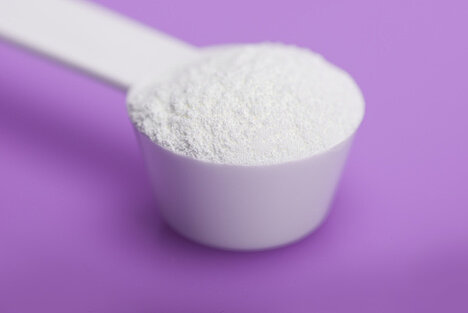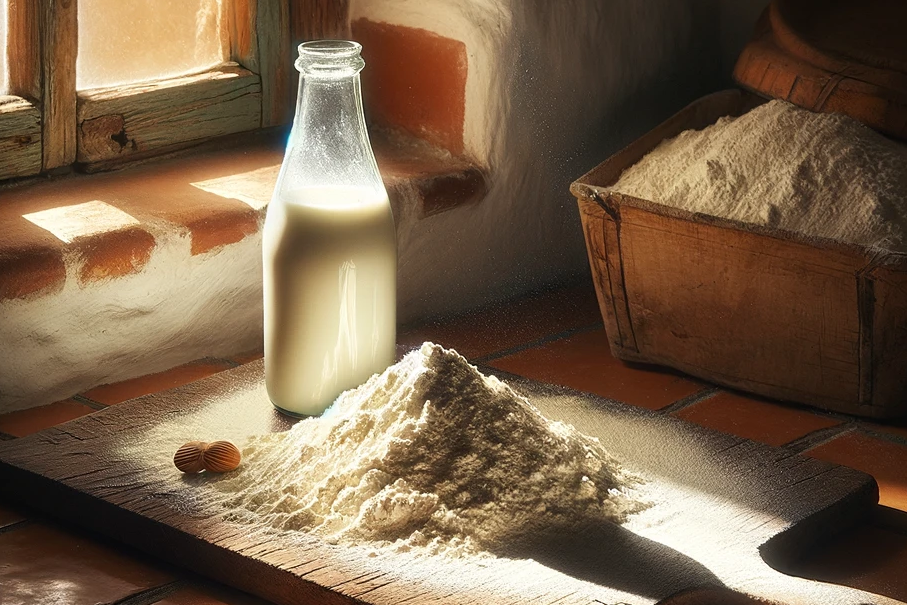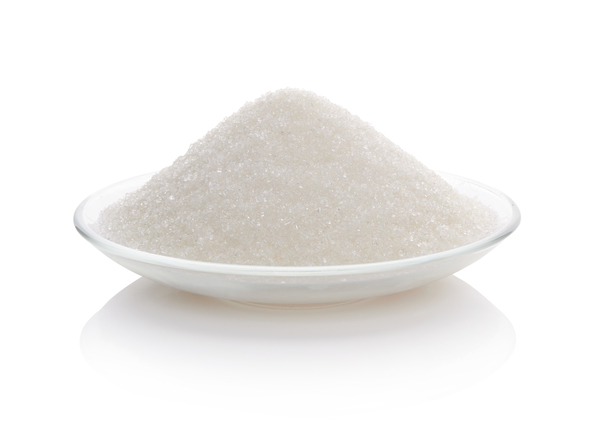Glucose

What is glucose?
Glucose is a monosaccharide, i.e. a simple sugar. It consists of a ring of six carbon atoms to which hydrogen and oxygen atoms are attached. Glucose is the most common sugar in nature and is found in many plants and fruits. It is also called glucose or dextrose.
Glucose is an important part of our diet because it provides our cells with energy. When you or your dog eats something that contains glucose, it is broken down in the digestive tract and absorbed into the blood. There it is regulated by a hormone called insulin, which ensures that the glucose enters the cells or is stored as glycogen. Glycogen is a type of storage sugar that is found in the liver and muscles.
Glucose is particularly important for the brain, as it can only work with glucose. That's why you and your dog need a constant glucose level in the blood to stay awake and alert. If the blood glucose level is too low, symptoms such as weakness, trembling, confusion or unconsciousness can occur. This is known as hypoglycemia.
Benefits of glucose for dogs
Glucose has several benefits for dogs, especially if they are physically active or suffer from certain diseases. Here are some examples:
- Glucose can improve the performance of dogs that do a lot of exercise or compete. It can help them last longer and recover faster.
- Glucose can help dogs suffering from diabetes mellitus. This is a metabolic disease in which the body does not produce enough insulin or does not respond to it properly. As a result, the blood sugar level rises too high, which can lead to various complications. Dogs with diabetes usually have to inject insulin and follow a special diet. However, it can sometimes happen that the blood sugar level drops too low, for example due to too much insulin or too little food. Glucose can then be used as an emergency measure to help raise the blood sugar level again.
- Glucose can help dogs with liver disease. The liver is responsible for storing and releasing glycogen. If the liver is damaged, it can no longer fulfill this function properly. This can lead to a lack of glucose in the blood, especially at night or during prolonged fasting. Glucose supplements can then help to keep blood sugar levels stable.
Disadvantages of glucose for dogs
However, glucose also has some disadvantages for dogs, especially if they get too much of it or cannot utilize enough. Here are some examples:
- Glucose can lead to overweight and obesity in dogs if they take in more calories than they can burn. This in turn can lead to various health problems such as joint problems, cardiovascular disease or diabetes.
- Glucose can lead to tooth decay and gingivitis in dogs.
Glucose is a common simple sugar that provides energy for cells and is important for the brain. In dogs, glucose can increase performance, help with diabetes and treat liver disease. However, excessive consumption of glucose can lead to obesity, tooth decay and gingivitis. It is important to keep an eye on blood sugar levels and give glucose in moderation.
Properties 1
Are you looking for other ingredients with a specific property?
Just click on them to find more.
If you notice any signs of hypersensitivity or poisoning in your dog, you should see your vet immediately. We are not a substitute for a vet, but we try to be as accurate as possible. Every dog reacts differently and we recommend you get a second opinion or consult your vet if in doubt.
Stay healthy and take good care of your four-legged friend!😊
Similar to Glucose
Fructose is a carbohydrate that is an important source of energy for the body. It is absorbed in the small intestine and enters the bloodstream. There it is either consumed directly or stored in the...
Galactose is a monosaccharide or simple sugar that is closely related to glucose. It is a building block of many important biomolecules and occurs naturally in foods, especially in dairy products,...
Maltose is a source of carbohydrates that dogs can use for energy. However, maltose should only be fed in moderation, as too much sugar can lead to obesity, diabetes or tooth decay. Maltose can also...
Sucrose itself is not toxic to dogs, but it can lead to various health problems if fed in excessive quantities. These include: Tooth decay: sucrose encourages the growth of bacteria in the mouth,...



